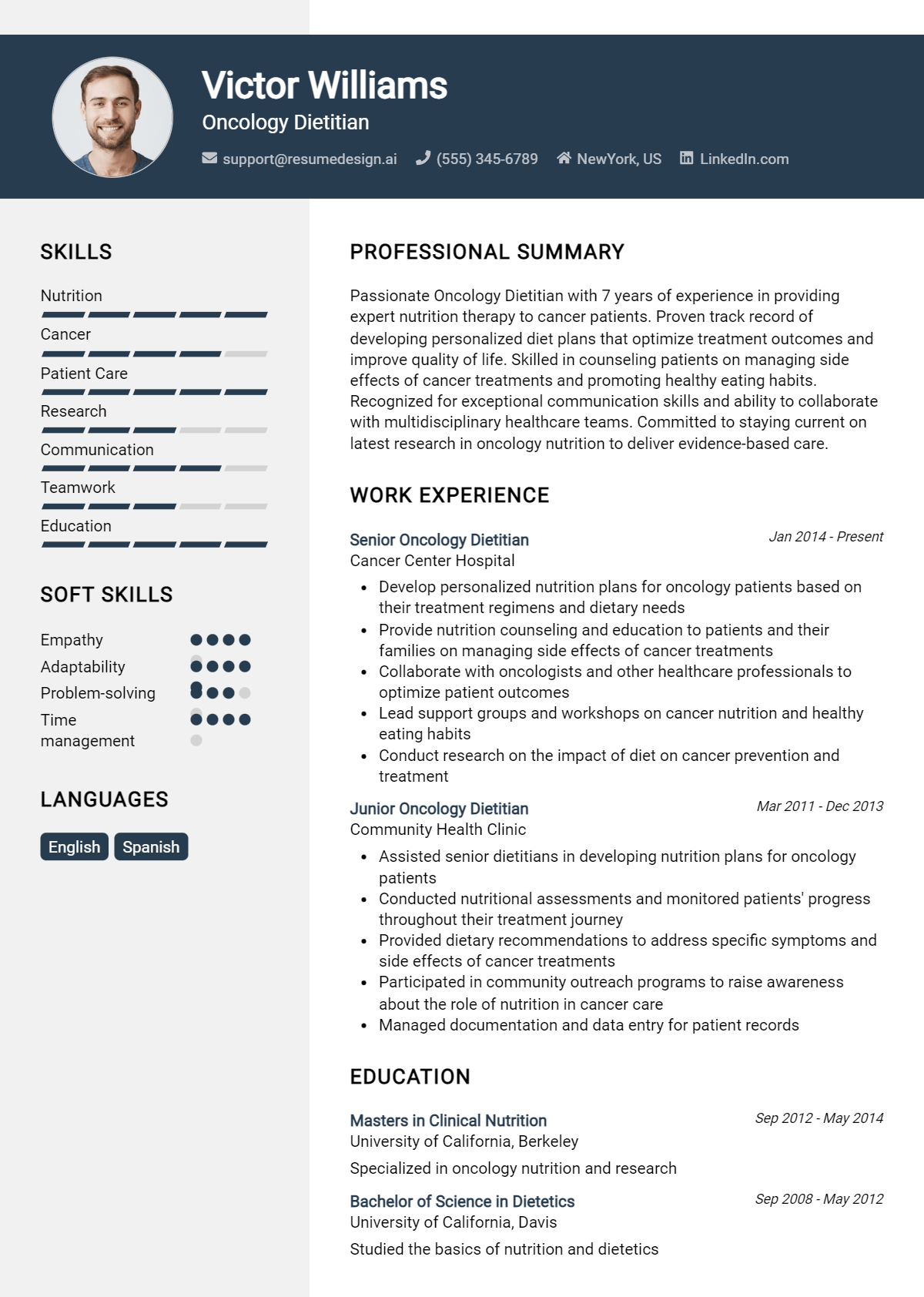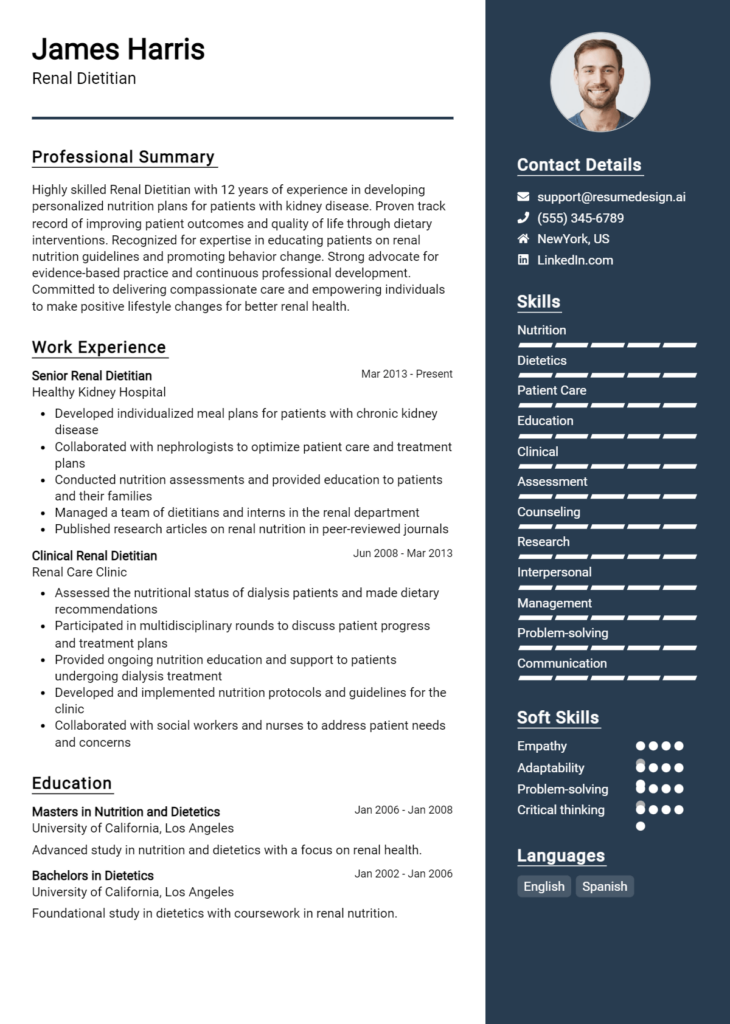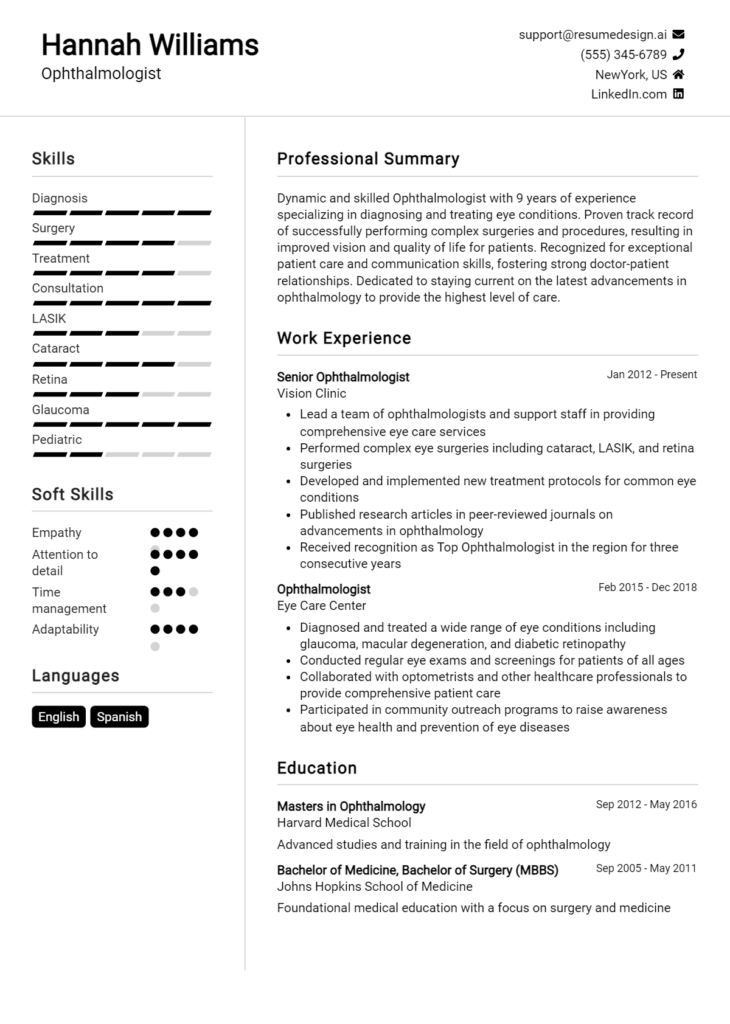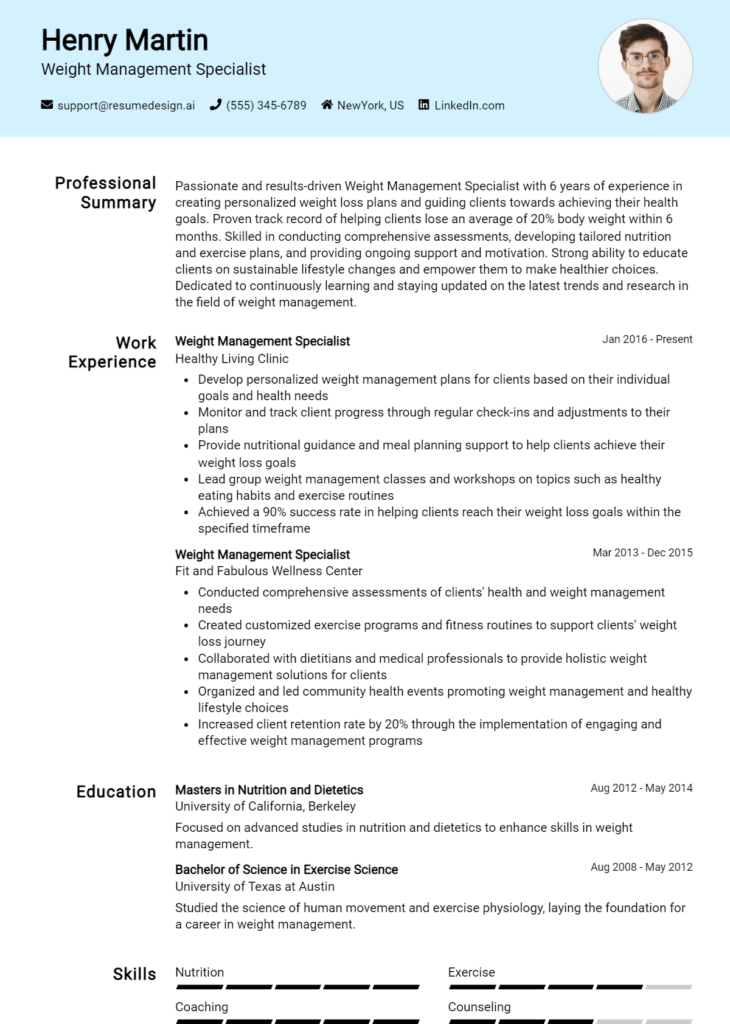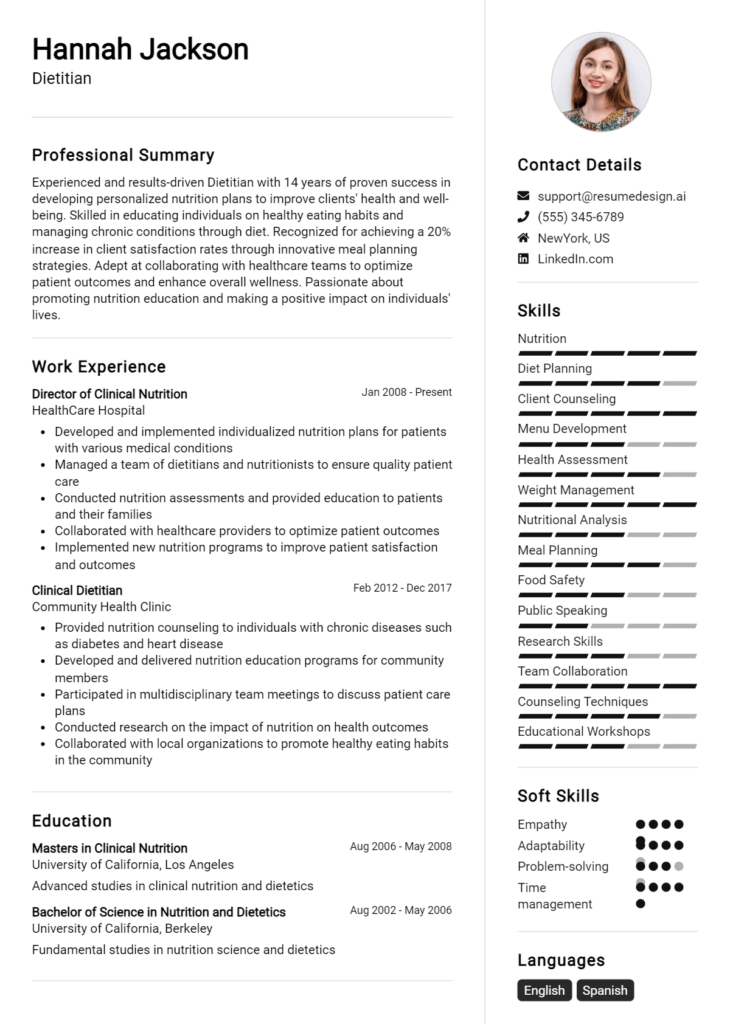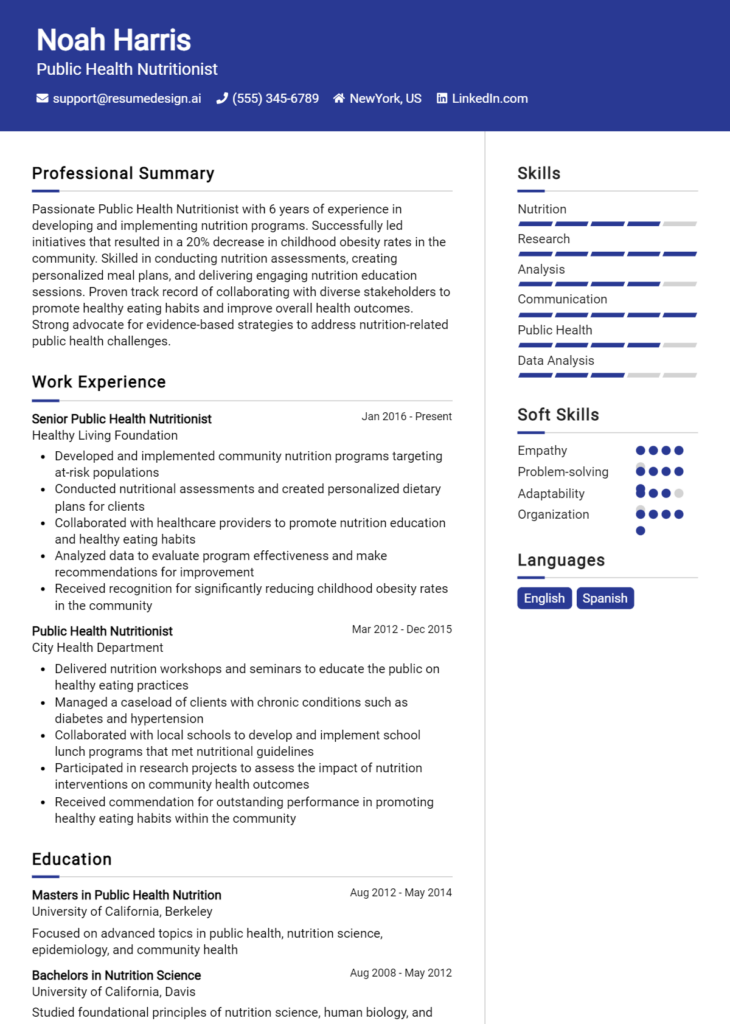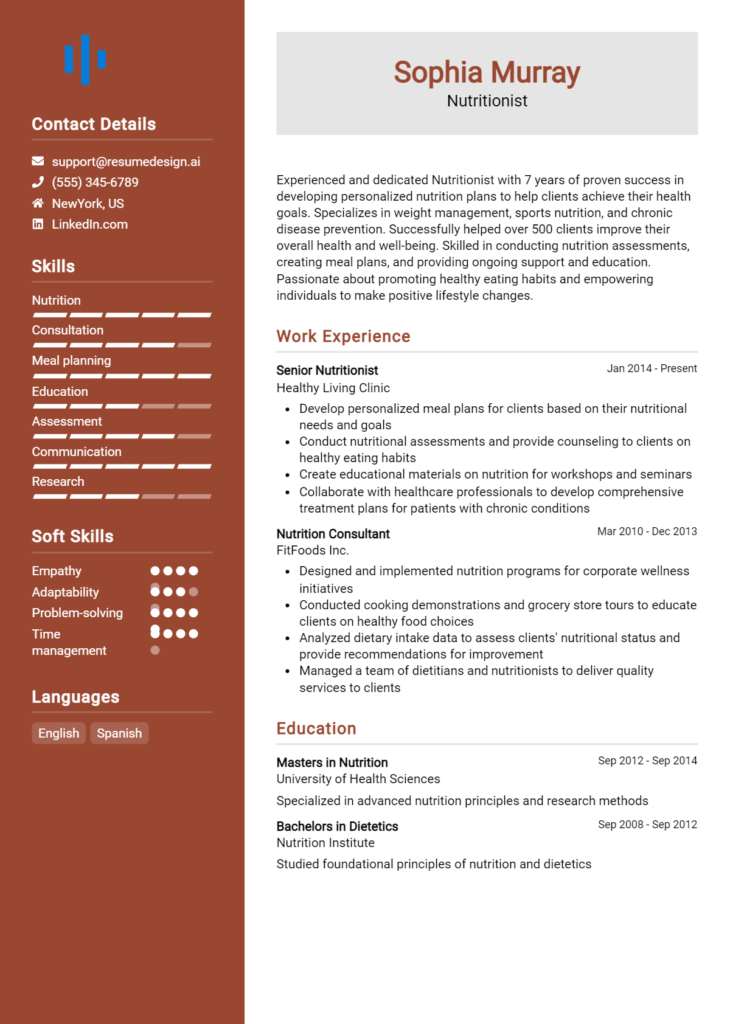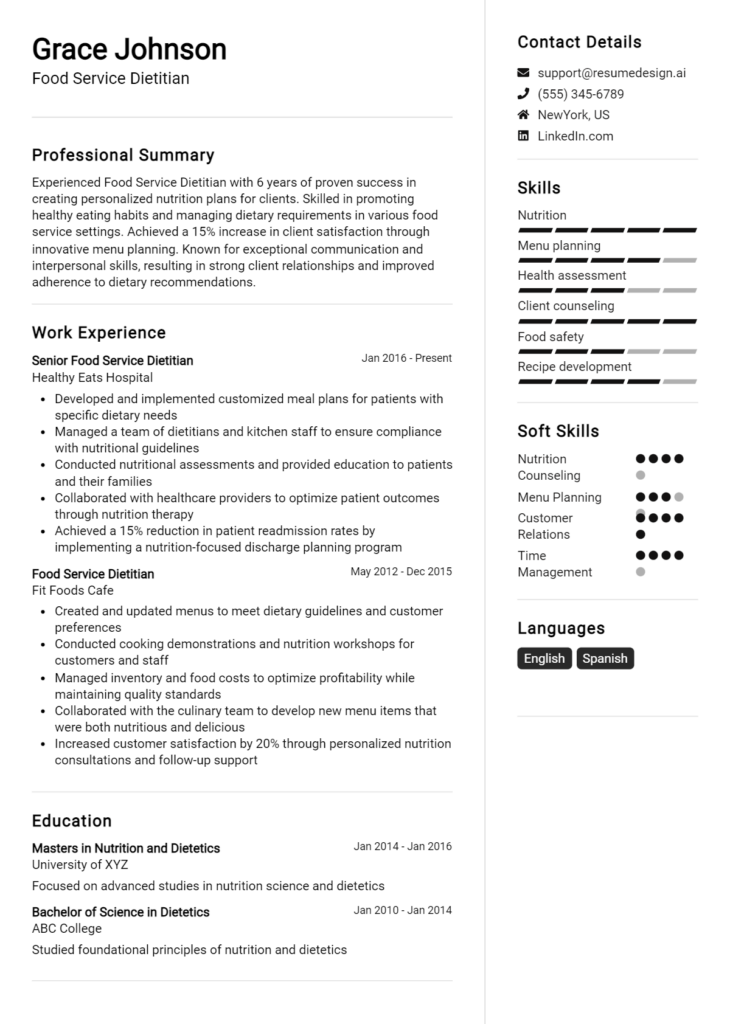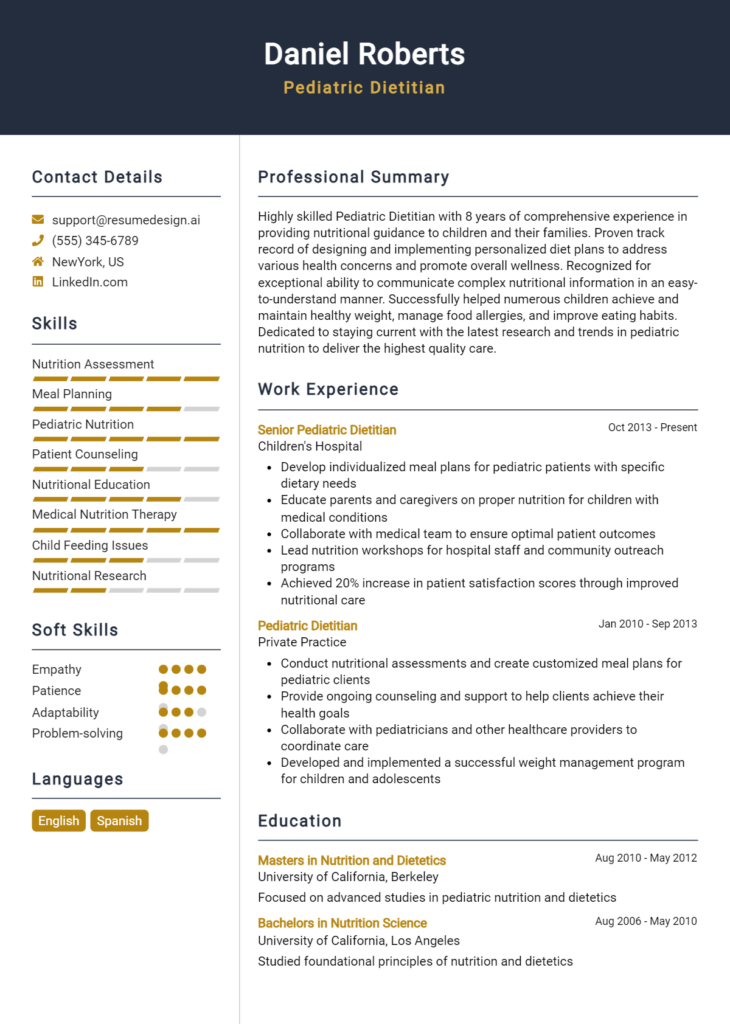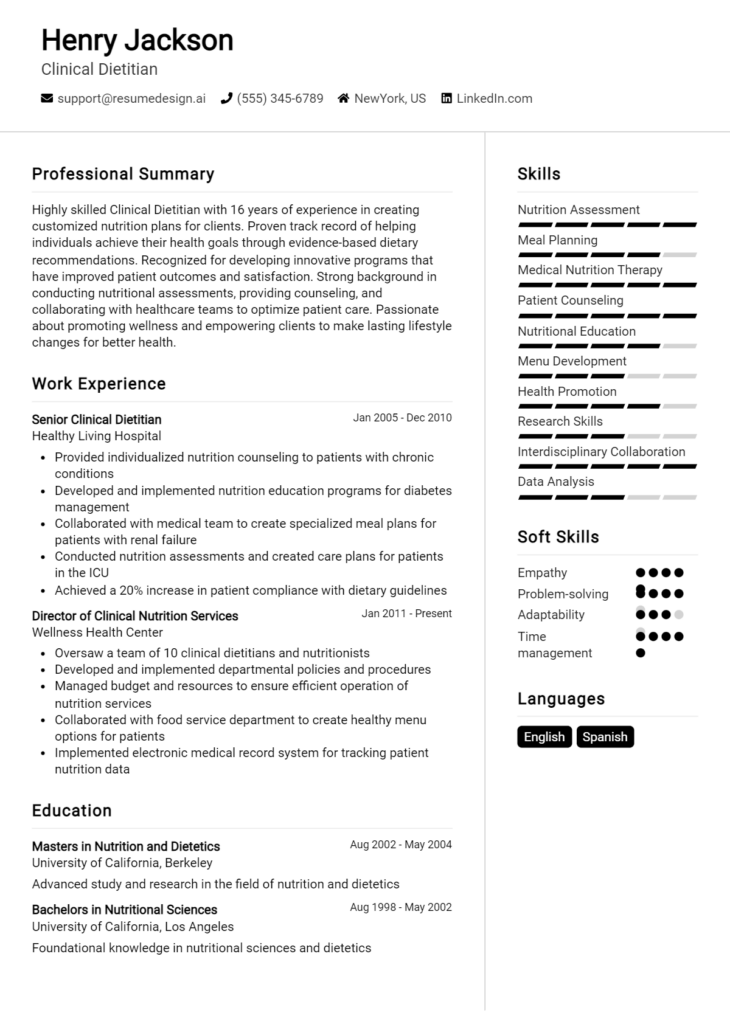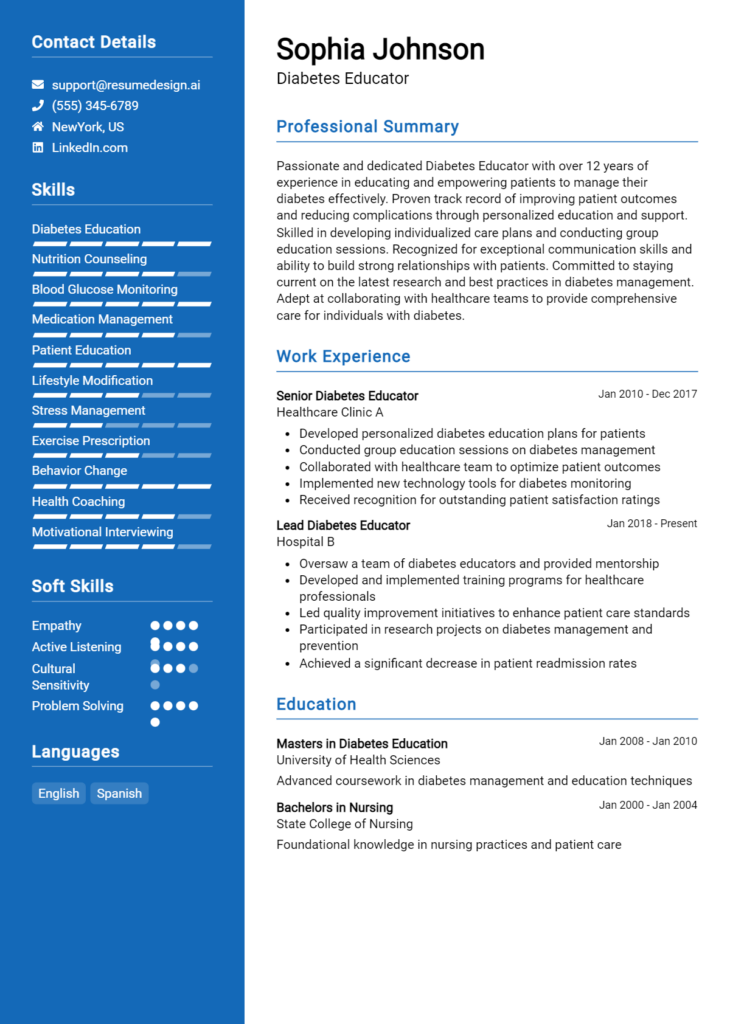Oncology Dietitian Core Responsibilities
An Oncology Dietitian plays a crucial role in patient care by developing tailored nutritional plans that support cancer treatment and recovery. This professional collaborates with oncologists, nurses, and other healthcare providers to ensure comprehensive care, requiring strong technical knowledge in nutrition, operational skills for managing dietary interventions, and problem-solving abilities to address individual patient needs. Their expertise contributes to improved patient outcomes, making a well-structured resume essential for showcasing these qualifications effectively in achieving organizational goals.
Common Responsibilities Listed on Oncology Dietitian Resume
- Assess patients' nutritional needs and develop personalized dietary plans.
- Collaborate with healthcare teams to integrate nutrition into cancer treatment plans.
- Provide education to patients and families on dietary management during treatment.
- Monitor and evaluate patients' nutritional status and progress.
- Conduct research on dietary impacts and emerging trends in oncology nutrition.
- Implement evidence-based nutritional interventions and adjustments.
- Guide patients on managing treatment side effects through nutrition.
- Document patient care and maintain accurate records of dietary interventions.
- Participate in multidisciplinary team meetings to discuss patient care strategies.
- Stay updated on oncology dietary guidelines and advancements in nutrition science.
- Advocate for nutritional support resources within the healthcare setting.
High-Level Resume Tips for Oncology Dietitian Professionals
In today's competitive job market, a well-crafted resume is crucial for Oncology Dietitian professionals aiming to stand out to potential employers. Your resume is often the first impression you make, serving as a vital tool to showcase your skills, experience, and achievements in a specialized field that requires both clinical knowledge and a compassionate approach to patient care. A strong resume not only highlights your qualifications but also reflects your understanding of the unique challenges faced by oncology patients. This guide will provide practical and actionable resume tips tailored specifically for Oncology Dietitian professionals, ensuring you present the best version of yourself to potential employers.
Top Resume Tips for Oncology Dietitian Professionals
- Tailor your resume to the job description by incorporating relevant keywords and phrases that align with the specific role.
- Highlight your clinical experience in oncology settings, emphasizing your work with cancer patients and any specialized training.
- Quantify your achievements by using metrics such as percentage improvements in patient dietary compliance or successful outcomes from nutrition interventions.
- Showcase your knowledge of oncology nutrition guidelines and any continuing education or certifications you have completed in the field.
- Include relevant skills, such as patient assessment, personalized meal planning, and interdisciplinary collaboration with healthcare teams.
- Demonstrate your ability to educate patients and their families about nutrition-related issues, showcasing effective communication skills.
- List any experience with research, clinical trials, or community outreach programs related to oncology nutrition.
- Utilize a clean, professional format that is easy to read, ensuring that key information is easily accessible to hiring managers.
- Incorporate a strong summary statement at the top of your resume that encapsulates your passion for oncology nutrition and your career objectives.
By implementing these resume tips, you can significantly enhance your chances of landing a job in the Oncology Dietitian field. A well-structured and tailored resume not only highlights your qualifications but also demonstrates your commitment to improving the lives of cancer patients through effective nutritional interventions, making you a standout candidate in this vital healthcare sector.
Why Resume Headlines & Titles are Important for Oncology Dietitian
In the competitive field of oncology dietetics, a well-crafted resume headline or title is crucial for standing out to hiring managers. A strong headline serves as the first impression, immediately capturing attention and summarizing a candidate’s key qualifications in a concise and impactful manner. It should reflect the candidate's expertise, highlight relevant skills, and align closely with the specific job they are applying for. By succinctly conveying essential information, a strong resume headline can set the tone for the entire resume, making it more likely that hiring managers will delve deeper into the candidate's qualifications.
Best Practices for Crafting Resume Headlines for Oncology Dietitian
- Make it concise: Aim for a headline that is brief and to the point, ideally no longer than one or two lines.
- Be role-specific: Tailor your headline to reflect the specific oncology dietitian position you are applying for.
- Highlight key qualifications: Include your most relevant skills, certifications, or accomplishments that align with the job description.
- Avoid generic phrases: Steer clear of clichés or vague terms that do not convey specific expertise.
- Use strong action words: Begin with dynamic verbs that convey confidence and competence.
- Consider including years of experience: Mentioning your level of experience can add credibility to your headline.
- Focus on measurable achievements: Where possible, include quantifiable outcomes that demonstrate your impact in previous roles.
- Ensure clarity: Avoid jargon that may confuse or alienate hiring managers unfamiliar with certain terms.
Example Resume Headlines for Oncology Dietitian
Strong Resume Headlines
Certified Oncology Dietitian with 5+ Years of Experience in Nutritional Care and Patient Education
Expert in Customized Nutritional Planning for Cancer Patients, Enhancing Treatment Outcomes
Dedicated Oncology Nutrition Specialist Committed to Evidence-Based Practices and Patient Success
Weak Resume Headlines
Dietitian with Experience
Nutrition Professional Seeking Opportunity
Strong resume headlines are effective because they provide clear, specific information that resonates with hiring managers looking for qualified candidates. They immediately convey relevant experience and expertise, making it easy for employers to see the candidate's potential contributions. In contrast, weak headlines tend to be vague and generic, failing to communicate any unique qualifications or strengths. This lack of specificity can leave hiring managers uninterested, as they may not see how the candidate stands out from the competition.
Writing an Exceptional Oncology Dietitian Resume Summary
A well-crafted resume summary is crucial for an Oncology Dietitian as it serves as the first impression for hiring managers. This brief yet impactful section of a resume quickly highlights the candidate's key skills, relevant experience, and notable accomplishments that align with the specific demands of the role. A strong summary not only captures attention but also sets the tone for the rest of the resume, making it essential that it is concise, compelling, and tailored to the job description being applied for.
Best Practices for Writing a Oncology Dietitian Resume Summary
- Quantify achievements: Use numbers and metrics to showcase your impact, such as the number of patients helped or percentage improvements in patient outcomes.
- Highlight relevant skills: Focus on specific skills that are directly related to oncology nutrition and patient care.
- Tailor your summary: Customize your summary for each job application by incorporating keywords and phrases from the job description.
- Keep it concise: Aim for 2-4 sentences that communicate your value succinctly without overwhelming the reader.
- Showcase certifications and education: Mention any relevant certifications or specialized training that enhance your qualifications.
- Demonstrate passion and commitment: Convey your dedication to oncology nutrition and the well-being of patients.
- Use active language: Employ strong action verbs to create a sense of urgency and competence.
Example Oncology Dietitian Resume Summaries
Strong Resume Summaries
Compassionate Oncology Dietitian with over 5 years of experience in developing tailored nutrition plans for cancer patients, resulting in a 30% improvement in patient adherence to dietary recommendations. Certified in oncology nutrition, skilled in collaborating with multidisciplinary teams to enhance patient outcomes.
Results-driven Oncology Dietitian specializing in evidence-based nutritional interventions for patients undergoing chemotherapy. Achieved a 40% reduction in treatment-related side effects through personalized dietary counseling and education programs.
Dedicated Oncology Dietitian with a Master's degree in Nutrition and Dietetics and over 7 years of experience in clinical settings. Successfully implemented a nutrition program that increased patient satisfaction scores by 25% while improving overall health metrics.
Weak Resume Summaries
Experienced dietitian looking for a new position in oncology. I have worked with patients and am familiar with nutrition.
Dietitian with some experience in oncology nutrition. I am dedicated to helping patients improve their health through diet.
The strong resume summaries are effective because they provide specific achievements and quantifiable results, demonstrating the candidate's direct impact and relevance to the Oncology Dietitian role. They use active language, highlight key skills, and tailor their experience to the job requirements. In contrast, the weak summaries are vague and lack substantial details or measurable outcomes, making them less compelling to potential employers.
Work Experience Section for Oncology Dietitian Resume
The work experience section of an Oncology Dietitian resume is crucial as it provides a comprehensive overview of the candidate's background, highlighting their technical skills and expertise in nutritional support for cancer patients. This section not only reflects the candidate's ability to manage teams effectively but also demonstrates their commitment to delivering high-quality products and services that align with the best practices in the oncology nutrition field. Quantifying achievements and aligning work experiences with industry standards are essential in making a strong impression on potential employers, showcasing both the effectiveness of the candidate's contributions and their capability to meet the specific needs of oncology settings.
Best Practices for Oncology Dietitian Work Experience
- Highlight specific technical skills related to oncology nutrition, such as knowledge of chemotherapy side effects and dietary interventions.
- Quantify achievements by including statistics, such as percentage improvements in patient outcomes or the number of patients managed.
- Emphasize collaboration with multidisciplinary teams, including oncologists, nurses, and social workers.
- Use action verbs to convey initiative and leadership in projects or patient care initiatives.
- Tailor experiences to align with job descriptions and industry trends to demonstrate relevant expertise.
- Include certifications or specialized training that enhances your qualifications as an oncology dietitian.
- Showcase participation in research projects or clinical trials that contribute to the field of oncology nutrition.
- Document improvements in patient satisfaction or quality of life metrics due to dietary interventions.
Example Work Experiences for Oncology Dietitian
Strong Experiences
- Led a team of 5 dietitians in developing an innovative nutrition program that improved patient adherence to dietary recommendations by 40% over one year.
- Implemented a new patient screening process that increased early identification of malnutrition in oncology patients by 30%, leading to timely interventions.
- Collaborated with a multidisciplinary team to create individualized nutrition plans for over 200 cancer patients, resulting in a 25% reduction in treatment-related weight loss.
- Conducted a research study on the impact of nutrition counseling on chemotherapy side effects, presenting findings at a national oncology conference.
Weak Experiences
- Assisted with patient nutrition needs.
- Worked on a team to provide support for cancer patients.
- Helped create meal plans.
- Participated in nutrition-related meetings.
The examples provided highlight the stark contrast between strong and weak experiences in an Oncology Dietitian resume. Strong experiences are characterized by quantifiable outcomes, clear leadership roles, and evidence of collaboration with healthcare teams, showcasing the candidate's impact on patient care. In contrast, weak experiences lack specificity, measurable results, and fail to convey the candidate’s unique contributions, making them less compelling to potential employers.
Education and Certifications Section for Oncology Dietitian Resume
The education and certifications section of an Oncology Dietitian resume is crucial for showcasing the candidate's academic foundation and professional qualifications in the field of nutrition as it relates to cancer care. This section not only highlights the relevant degrees obtained but also underscores industry-recognized certifications and specialized training that reflect the candidate's commitment to ongoing education and expertise in oncology dietetics. By providing detailed information about relevant coursework and certifications, candidates can enhance their credibility, align their qualifications with the specific demands of the job role, and demonstrate their preparedness to contribute effectively to patient care and interdisciplinary teams.
Best Practices for Oncology Dietitian Education and Certifications
- Include only relevant degrees and certifications that pertain to oncology or nutrition.
- Highlight advanced degrees, such as a Master's in Nutrition or Dietetics, which showcase higher education.
- List industry-recognized certifications, such as Certified Specialist in Oncology Nutrition (CSO).
- Detail any specialized training or workshops attended that focus on oncology nutrition.
- Incorporate relevant coursework that aligns with oncology dietetics.
- Provide dates of graduation and certification to indicate currency in the field.
- Use clear and concise language, avoiding jargon that may not be understood by all hiring managers.
- Keep the section well-organized, ensuring easy readability and quick access to key information.
Example Education and Certifications for Oncology Dietitian
Strong Examples
- Master of Science in Nutrition and Dietetics, University of Health Sciences, 2021
- Certified Specialist in Oncology Nutrition (CSO), 2022
- Completed advanced coursework in Nutritional Oncology and Cancer Prevention, 2020
- Bachelor of Science in Dietetics, University of Nutrition, 2019
Weak Examples
- Associate Degree in General Studies, 2015
- Certification in Basic Food Safety, 2018
- Completed a course in Culinary Arts, 2017
- Nutrition and Wellness Coach Certification, 2020
The strong examples are considered effective because they demonstrate relevant educational qualifications and specialized certifications that directly align with the role of an Oncology Dietitian, emphasizing the candidate's preparedness for the position. In contrast, the weak examples highlight qualifications that lack direct relevance to oncology dietetics, making them less impactful in showcasing the candidate's suitability for the job. This distinction is essential for demonstrating the candidate's focus and expertise in the specific area of oncology nutrition.
Top Skills & Keywords for Oncology Dietitian Resume
An Oncology Dietitian plays a crucial role in the healthcare team, providing specialized nutritional guidance to individuals undergoing cancer treatment. A well-crafted resume that highlights relevant skills is essential for standing out in this competitive field. The right mix of hard and soft skills not only reflects a candidate's expertise but also their ability to connect with patients and collaborate effectively with medical professionals. By showcasing these skills, an Oncology Dietitian can demonstrate their commitment to enhancing patient care through nutrition, making their resume an essential tool in the job search process. For a comprehensive overview of skills, you may want to explore more about skills and work experience.
Top Hard & Soft Skills for Oncology Dietitian
Hard Skills
- Nutritional assessment and planning
- Oncology nutrition guidelines
- Enteral and parenteral nutrition
- Food safety and sanitation
- Nutritional biochemistry
- Dietary analysis software proficiency
- Cancer treatment modalities (chemotherapy, radiation, etc.)
- Nutritional counseling techniques
- Research and evidence-based practice
- Patient education strategies
- Knowledge of dietary supplements
- Cooking and meal preparation skills
- Health informatics systems
- Regulatory compliance in nutrition
- Clinical documentation
- Community outreach and education
- Cultural competency in dietary needs
Soft Skills
- Empathy and compassion
- Excellent communication skills
- Team collaboration
- Problem-solving abilities
- Time management
- Adaptability and flexibility
- Critical thinking
- Attention to detail
- Active listening
- Motivation and encouragement
- Conflict resolution
- Interpersonal skills
- Patience and resilience
- Cultural sensitivity
- Professionalism
- Organizational skills
- Ability to work under pressure
Stand Out with a Winning Oncology Dietitian Cover Letter
Dear [Hiring Manager's Name],
I am writing to express my enthusiasm for the Oncology Dietitian position at [Company/Organization Name], as advertised on [where you found the job listing]. With a Master’s degree in Nutrition and Dietetics and over [X years] of experience working specifically with cancer patients, I am confident in my ability to contribute effectively to your team and support patients in their nutritional needs during treatment and recovery. My clinical expertise, combined with my passion for patient education, positions me uniquely to help improve the quality of life for individuals facing cancer.
Throughout my career, I have had the privilege of working in multidisciplinary teams where I was responsible for developing and implementing individualized nutrition plans tailored to the specific dietary needs of oncology patients. I possess a deep understanding of the complexities surrounding cancer treatment and the challenges patients face regarding their nutritional intake. By staying current with the latest research on oncology nutrition, I have successfully guided patients through diet modifications that have enhanced their treatment outcomes and overall well-being. Moreover, my ability to establish rapport with patients and their families has allowed me to provide compassionate support during a challenging time in their lives.
In my previous role at [Previous Organization Name], I initiated a nutrition education program that not only provided patients with essential dietary information but also empowered them to make informed choices about their nutrition. This program resulted in improved patient satisfaction scores and demonstrated the importance of nutrition in cancer care. I am excited about the opportunity to bring my skills in program development and patient advocacy to [Company/Organization Name], where I can continue to make a meaningful impact on the lives of those battling cancer.
Thank you for considering my application. I look forward to the possibility of discussing how my experience and passion for oncology nutrition align with the goals of [Company/Organization Name]. I am eager to contribute my expertise to your team and help support patients on their journey toward recovery.
Sincerely,
[Your Name]
[Your Contact Information]
Common Mistakes to Avoid in a Oncology Dietitian Resume
When crafting a resume for the role of an Oncology Dietitian, it's crucial to present your qualifications and experience in a compelling and precise manner. However, many candidates make common mistakes that can hinder their chances of landing an interview. Avoiding these pitfalls can significantly improve your resume's effectiveness and help you stand out in a competitive job market.
Generic Objective Statements: Using a one-size-fits-all objective statement can make your resume seem impersonal. Tailor your objective to reflect your passion for oncology nutrition and the specific position you’re applying for.
Lack of Specificity: Failing to provide specific examples of your achievements can weaken your resume. Use quantifiable metrics, such as the percentage of patients who improved their nutritional status under your care, to demonstrate your impact.
Ignoring Keywords: Many employers use applicant tracking systems (ATS) to filter resumes. Neglecting to include relevant keywords from the job description can lead to your resume being overlooked.
Overloading on Technical Jargon: While it's essential to showcase your expertise, using excessive technical terms can alienate hiring managers. Balance your language to ensure clarity while still conveying your qualifications.
Not Highlighting Relevant Experience: Some candidates focus too much on unrelated job experience. Ensure that your resume emphasizes your background in oncology and related fields to highlight your suitability for the role.
Formatting Issues: A cluttered or inconsistent format can distract from your content. Use clear headings, bullet points, and ample white space to make your resume easy to read and visually appealing.
Neglecting Continuing Education: Oncology is an evolving field, and failing to include relevant certifications or ongoing education can make you seem outdated. Highlight any recent training or certifications to demonstrate your commitment to professional development.
Omitting Soft Skills: While technical skills are critical, soft skills like empathy, communication, and teamwork are equally important in oncology settings. Be sure to include examples that showcase these abilities.

